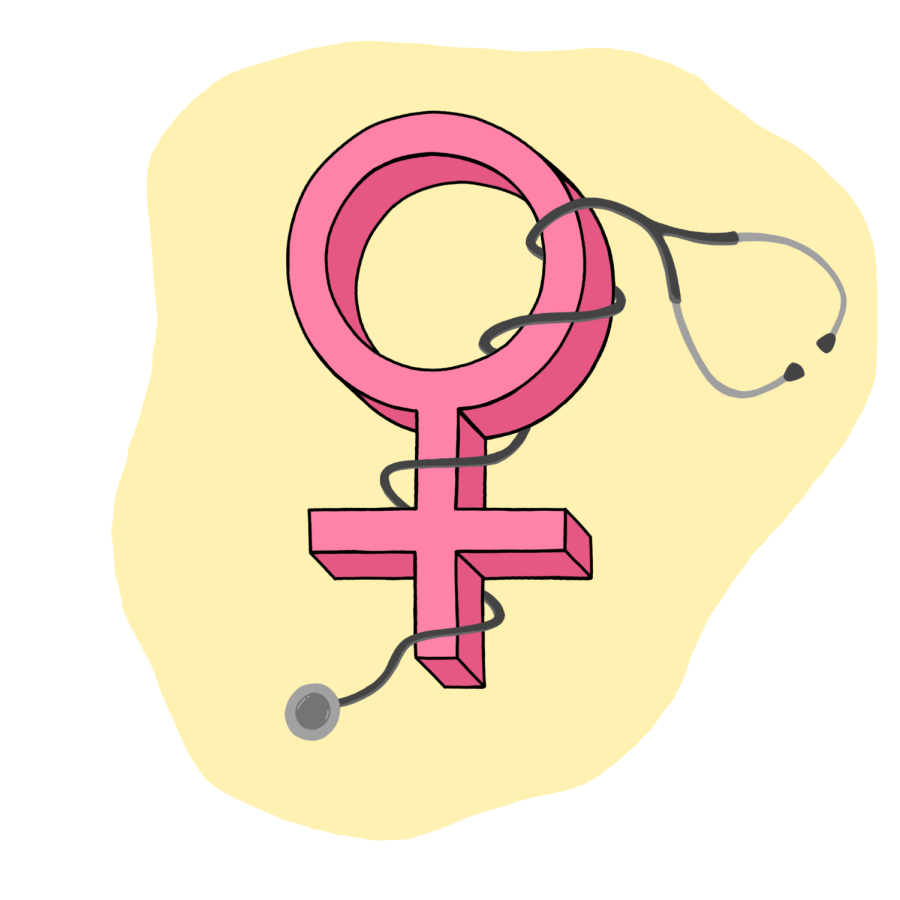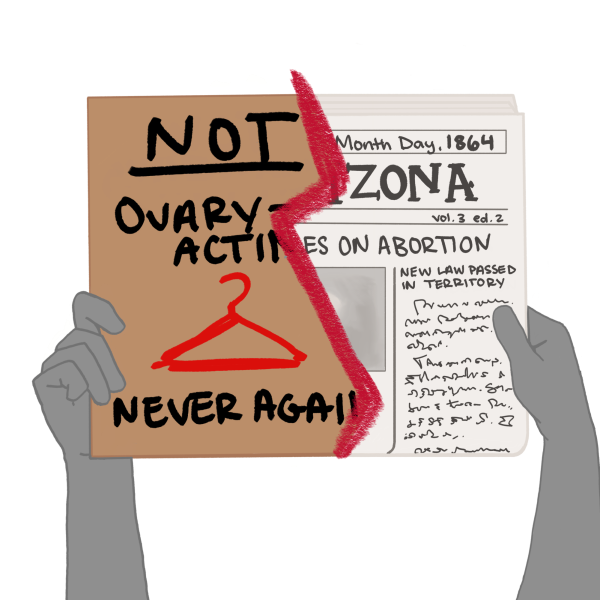Misogyny in Medicine
April 19, 2022
Gender bias has long affected the medical field. As a result, women’s concerns are downplayed or completely disregarded, with misdiagnosis being a frequent occurrence. Inclusivity and diversity in the workplace at higher positions are exceedingly rare, with the majority of occupations being dominated by men.
In clinical trials, women are a small minority, the pool being represented predominantly by white men. For thousands of years, women’s bodies have been misunderstood, their mysterious afflictions regarded as female hysteria.
“The underrepresentation of women in clinical research has complex roots . . . There’s a deeply rooted concept that the 70kg white male is ‘normal’ and that women are deviations from that model,” Reshma Jagsi M.D., director of the Center of Bioethics and Social Science in Medicine at the University of Michigan said. “There are important biological differences between men and women that may lead to differences in, say, how drugs are metabolized . . . Generalizing from studies conducted largely or exclusively in men to make treatment recommendations for women can be inappropriate — and downright dangerous.”
For women, heart attacks are 50% more likely to be misdiagnosed than for men. It is commonly believed that younger women do not experience heart attacks, which is false. Heart disease is the leading cause of death for women in the United States. This scarcity of knowledge has caused numerous deaths that could have been prevented.
Mental health disorders are regularly misdiagnosed in women; it can take years to get a proper diagnosis. ADHD has varying symptoms, which can differ in how they present based on gender. The lack of knowledge about how different symptoms present has caused irreparable harm to women’s bodies and minds.
Women’s health is consistently disregarded because they are seen more as incubators rather than people. Medical decisions are decided based on a child not even conceived. A woman could be in tremendous pain and the only fix would cause infertility, yet the doctor would refuse. Common phrases are: “What if you regret it?” “What if your future husband wants kids?” “We will need your husband’s permission.”
Doctors disregard women’s concerns over their health, saying, “it’s just stress, you’re perfectly fine it will pass just keep doing what you’re doing.” The amount of gaslighting is insane and the belief that it’s attention-grabbing behavior is aggravating.
There are few doctors out there who listen and take women’s concerns seriously — at any rate, it is still a rare occurrence. A majority of women have typically been the most mistreated. These issues may be partly misogynistic in nature, nevertheless, the problems generally stem from an absence of information on the inner workings of women’s bodies.
When looking into the medical field, at first glance, the portrayal of women seems unparalleled compared to other industries in STEM. However, as women rise up the ranks, they start hitting the proverbial glass ceiling. Such limited representation in the higher echelon results in a lost perspective on women’s health issues.
In 2016, women made up 33% of physicians in the United States, yet men held a majority of the higher positions, with 85% being department chairs, 84% deans and 82% being hospital CEOs.
“We go through the same schooling, the same training as our male counterparts. We took the same examinations as our male counterparts. There’s no reason to believe that we can’t deliver equal quality care as our male counterparts,” Dr. Yvette Canaba, a podiatric surgeon and physician at St. John’s Episcopal Hospital in New York said.
When women are excluded from participating, the expertise they bring loses a crucial perspective. “It was very easy for the male counterparts in my group to kind of set me aside when it came to making decisions for the plan of care for patients.”
“In the end, it’s the patient that loses. . . Our patient population as a whole definitely benefits from a more diverse group of physicians that is in charge of their care,” Cabana said.
These challenges in the medical field are difficult to navigate alone. Fortunately, programs created by women for women exist to help navigate careers in medicine. AAMC’S Women in Medicine, Cardinal Health’s Women in Pharmacy and SEIU Healthcare’s Women in Medicine are a few of the many programs out there to help women traverse the complicated issues that arise in the medical field.
“There’s always going to be someone out there who has not been afraid to speak out and move forward despite these things . . . Seek them out for mentorship and support because they’re out there,” Cabana said.
Women are taught by society that they are incapable, either unconsciously or consciously; their assertiveness is degraded while their submissiveness is applauded. Issues in women’s health are deeply rooted in thousands of years of gender bias. There needs to be a shift in priority. How is there so little research on women’s health? Men and women are fundamentally different in many ways, yet women are disregarded and gaslighted for things out of our control. The lack of knowledge about women’s bodies has caused irreversible mental and physical harm. Change needs to happen.













